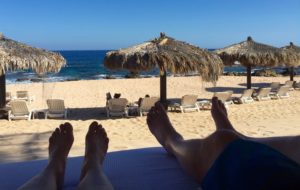Help us help you! Please use the form to tell us what you think contributed to this illness. For your privacy, your name and e-mail address are not asked for here.
ALS is a somewhat diverse and decidedly mystifying disease. In more than nine out of every 10 cases diagnosed, no clear identifying cause of the disease is apparent, that is, patients lack an obvious genetic history, complete with affected family members. Also, nothing about the way patients live their lives gives scientists and clinicians clues as to what causes ALS. Nothing in patients’ diet, where they’ve lived, how they’ve lived or what they’ve done with their lives can easily explain why they’ve developed this late onset, fully developed and progressive disease.
http://als.ucsd.edu/about-als/Pages/causes.aspx
ALS, or amyotrophic lateral sclerosis, is a progressive neurodegenerative disease that affects nerve cells in the brain and the spinal cord. A-myo-trophic comes from the Greek language. “A” means no. “Myo” refers to muscle, and “Trophic” means nourishment – “No muscle nourishment.” When a muscle has no nourishment, it “atrophies” or wastes away. “Lateral” identifies the areas in a person’s spinal cord where portions of the nerve cells that signal and control the muscles are located. As this area degenerates, it leads to scarring or hardening (“sclerosis”) in the region.
|


